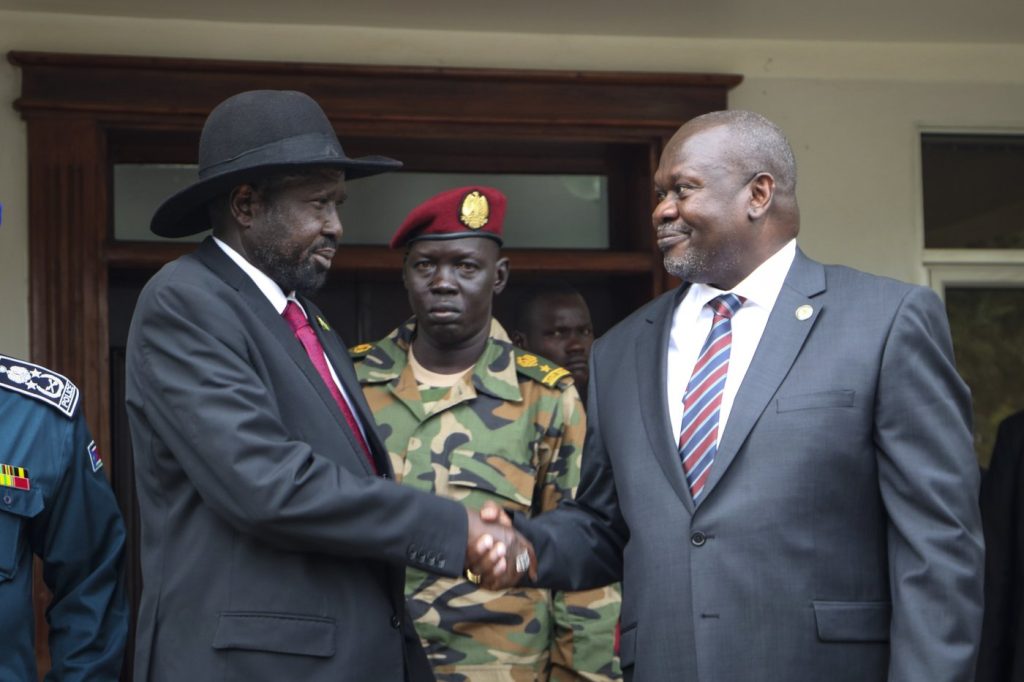KAMPALA, Uganda (AP) — Uganda has recently initiated the deployment of an unspecified number of troops to South Sudan to bolster the vulnerable government of President Salva Kiir, as escalating tensions with his deputy raise fears of a potential return to civil war in the region. According to Maj. Gen. Felix Kulayigye, a spokesperson for the Ugandan military, Ugandan special forces have been dispatched to Juba, the capital of South Sudan, “to support the government of South Sudan” against a possible advance by rebel forces toward the city.
Maj. Gen. Kulayigye emphasized that the Ugandan contingent is not in South Sudan for peacekeeping purposes. This military action by Ugandan President Yoweri Museveni serves as a guarantor of the peace process which has been instrumental in maintaining a fragile coalition between Kiir and his rival, Riek Machar, in a government of national unity. Museveni and Kiir share a close alliance, with Uganda historically intervening in South Sudan's conflicts to support Kiir's leadership.
The deployment underscores the increasing volatility within South Sudan, a resource-rich nation that has struggled with political instability and violence since achieving independence from Sudan in 2011. As tensions escalate, the United States has ordered the evacuation of non-emergency government personnel from Juba, while the United Nations warns of a “concerning regression that could undo years of hard-earned progress” in South Sudan.
The recent unrest is rooted in clashes in northern South Sudan where government forces are engaged in fighting against a rebel militia known as the White Army, which is believed to have affiliations with Machar. Notably, last week, a South Sudanese general was among several casualties resulting from gunfire directed at a United Nations helicopter that was on a mission to evacuate government troops from the conflict-affected town of Nasir in Upper Nile state. Previous skirmishes saw the White Army overpower a military garrison in Nasir, leading to government troops encircling Machar's residence in Juba and the arrest of several of his close allies, including Deputy Army Chief Gen. Gabriel Duop Lam, who is perceived to be loyal to Machar.
Earlier this year, Kiir further strained relations by dismissing officials loyal to Machar, leading Machar to accuse the government of “persistent violations through unilateral decisions and decrees” that jeopardize their peace agreement. In light of these developments, Kiir has urged restraint and expressed confidence that his government “will handle this crisis and we will remain steadfast in the path of peace.”
South Sudan erupted into civil war in late 2013 following a power struggle between Kiir and Machar, which manifested along ethnic lines, with Kiir, an ethnic Dinka, accusing soldiers loyal to Machar, an ethnic Nuer, of attempting to seize power. After fleeing Juba, rebel forces loyal to Machar came perilously close to capturing the capital but were ultimately repelled by a coalition of South Sudanese military forces loyal to Kiir and Ugandan special forces. The brutal civil conflict that ensued claimed the lives of over 400,000 individuals across a five-year period.
With support from regional leaders and the international community, Kiir and Machar ultimately signed a peace deal in 2018, leading to Machar's return to Juba as the country’s first vice president. However, the longstanding political rivalry between the two men — with Kiir harboring distrust of Machar's ambitions and Machar branding Kiir a dictator — continues to obstruct the path to sustainable peace. Both leaders face international pressure, including from the U.S., to expedite the implementation of the 2018 peace agreement and to prepare for forthcoming elections.
Despite ongoing challenges, including the government's failure to enact required reforms such as the unification of the army command, presidential elections, which have been delayed multiple times, are currently slated for 2026.










